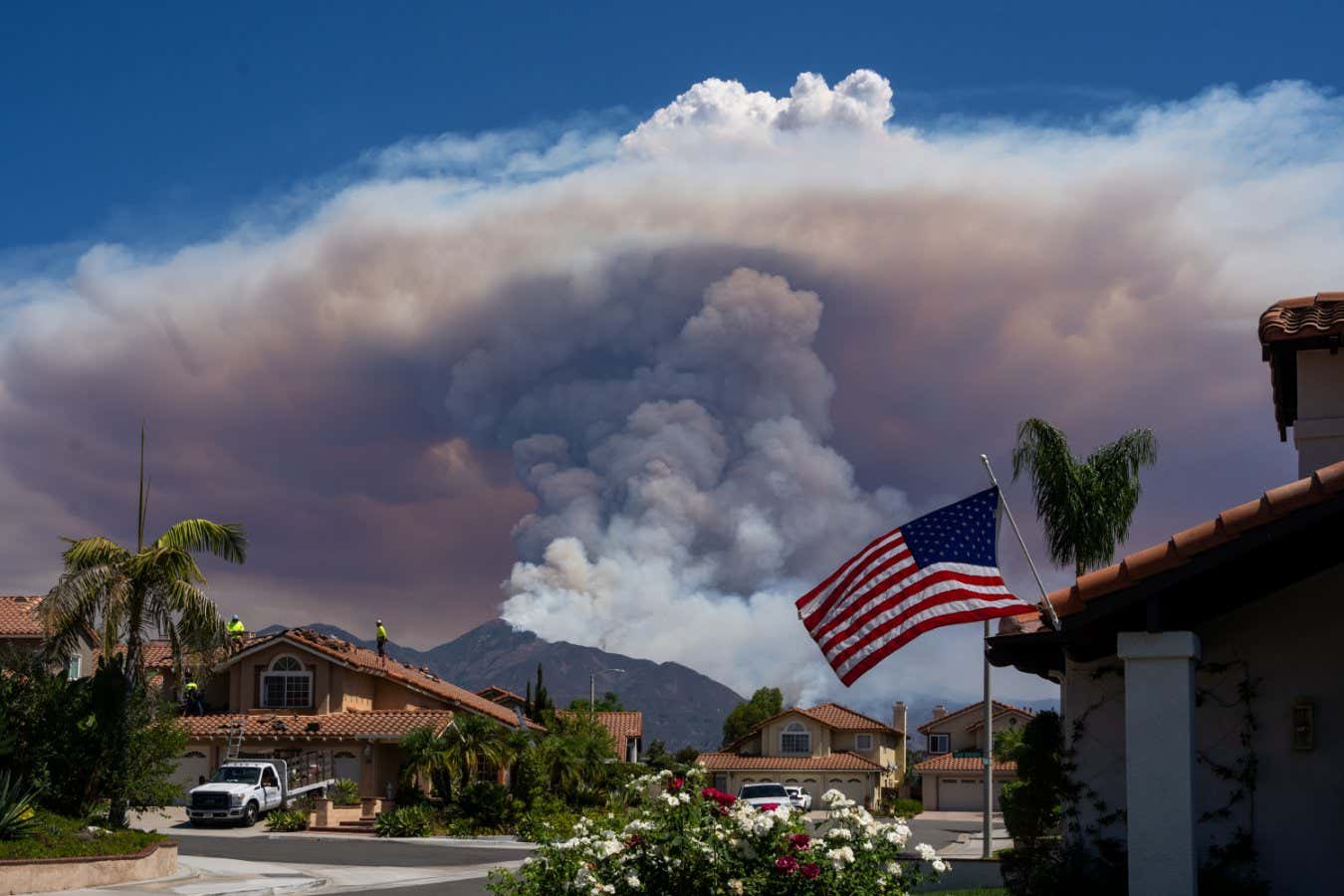The Art of Doing Fieldwork on the Moon. This fresh look at the idea of fieldwork takes readers to the Moon and back as a new generation of planetary scientists and astronauts learns how to do fieldwork by proxy.
—Jennifer Schmidt, Managing Editor
The Arctic’s Uncertain Future. What will the Arctic look like in the future? It’ll definitely be different, but it’s still very uncertain what, exactly, will change. In this phenomenally reported and visually stunning story, Eos’s own Grace van Deelen takes readers through the varying trajectories Earth’s polar region could take, and what it will take to help the Arctic retain “its soul.”
—Kimberly M. S. Cartier, Senior Science Reporter
Our senior science reporter, Kim, wrote this thought-provoking piece about Deaf geoscientists creating new signs to communicate their science. Because who wants to fingerspell “chromatography” dozens of times during a lecture?
—Emily Dieckman, Associate Editor
It was the “year of democracy,” as many called it, and I really appreciated that Eos reported on how candidates tackled scientific issues in its coverage—which continues on, because science policy is only becoming more important around the world.

—Heather Goss, Publisher and Senior Director of Strategic Communications and Marketing
The Past, Present, and Future of Extraterrestrial Sample Return. There’s a lot of debate in the space policy sphere about the future of a sample return mission from Mars. One of the fundamental questions surrounding this is, Why do we need sample returns at all? If you’re asking yourself whether a sample return mission really is all that and a bag of asteroid dust, this article is for you.
—Kimberly M. S. Cartier, Senior Science Reporter
Remote observations from telescopes, spacecraft, and landers provide a wealth of information about other planets and bodies in the solar system. But there’s only so much you can learn from afar. This article makes a compelling case “to keep collecting, returning, and preserving material from beyond our own planet” and strikes a hopeful note that coming missions should “continue the legacy of past sample return endeavors well into the future.”
—Timothy Oleson, Senior Science Editor
Tatooine, Trisolaris, Thessia: Sci-Fi Exoplanets Reflect Real-Life Discoveries. I enjoyed my fellow Eos writer Kim’s story on how advances in exoplanet science pushed the limits of sci-fi. It’s fascinating to think that what we know about our real universe might determine how creative we are in our fictional ones. (And, did you know Arrakis is a real place?)
—Grace van Deelen, Staff Writer

As someone who enjoys cooking on an open flame, I never fully considered how harmful my cooking preferences could be to myself and the environment. As a part of our #AGU24 coverage, I read about the ways gas stoves contribute to pollution, the potential health effects caused by methane leaks, and how to mitigate some of those risks.
—Anaise Aristide, Senior Production and Analytics Specialist
Can the Belt and Road Go Green? China’s monumental Belt and Road Initiative has the potential to shift global conversations and policies around sustainable development. I love that this article focuses on Chinese infrastructure in a uniquely South American landscape; it shows the sheer scope of the project, as well as its practical ambitions.
—Caryl-Sue Micalizio, Editor in Chief
I’ve been enjoying The Pudding this year, a website producing some really interesting and interactive data essays examining, for example, the divide between people whose work requires mostly sitting or mostly standing, how sci-fi worlds have evolved over the past few decades, and how specific cities could be affected by climate change.
—Emily Dieckman, Associate Editor

I loved the entire Sounds of Science issue, especially The 21st Century’s “Music of the Spheres.” The idea of translating the light of the universe into sounds is an incredible one—and with more than 2 billion people who’ve already listened to the deep and “ominous” tones of a black hole, I’m clearly not the only one who thought so.
—Heather Goss, Publisher and Senior Director of Strategic Communications and Marketing
The Conversation published an eye-opening article about how the safety of incarcerated people is often jeopardized during natural disasters.
As one of society’s most vulnerable populations, people in jails and prisons rely heavily on others to consider their well-being and make decisions in their best interests during health emergencies. The article explores the unique effects Hurricane Helene had on people in jails and prisons and why they are often overlooked.
—Anaise Aristide, Senior Production and Analytics Specialist

The End of the Eclipse. This year, millions of people across the Americas were privileged to witness a total solar eclipse. This awe-inspiring natural event is a coincidence of geometry, and as the Moon slowly creeps away from Earth, that coincidence will end. Explore what other changes the Moon’s slow retreat will create.
—Kimberly M. S. Cartier, Senior Science Reporter
Point Nemo, the Most Remote Place on Earth. This science-adjacent story is a neat dive into the oceanic pole of accessibility—the search for it, happenings near it, and quests to reach it.
—Jennifer Schmidt, Managing Editor
How Great Was the “Great Oxidation Event”? Writing an engaging narrative about isotopic studies of sediments is a challenge, even for seasoned science writers. This first-person account of recent research deftly pulls off the feat, taking readers from the ancient past of the early Proterozoic to the modern, acidic waters of Spain’s Rio Tinto (and back again) to explain how a study of chromium isotopes helped reconcile conflicting ideas about the early oxygenation of Earth’s atmosphere.
—Timothy Oleson, Senior Science Editor
Elephants Are Doing Something Deeply Human. I love a good animal story, and 2024 was full of them, including this report on findings that African elephants use name-like calls and recognize other elephants as individuals. Owing to research like this, more than 500 scientists and philosophers declared this year that there’s a “realistic possibility” that all vertebrates and many invertebrates experience consciousness—wow!
—Grace van Deelen, Staff Writer
There is a club edit of this year’s Dance Your PhD winner. Kangariffic.
—Caryl-Sue Micalizio, Editor in Chief










Leave a Comment